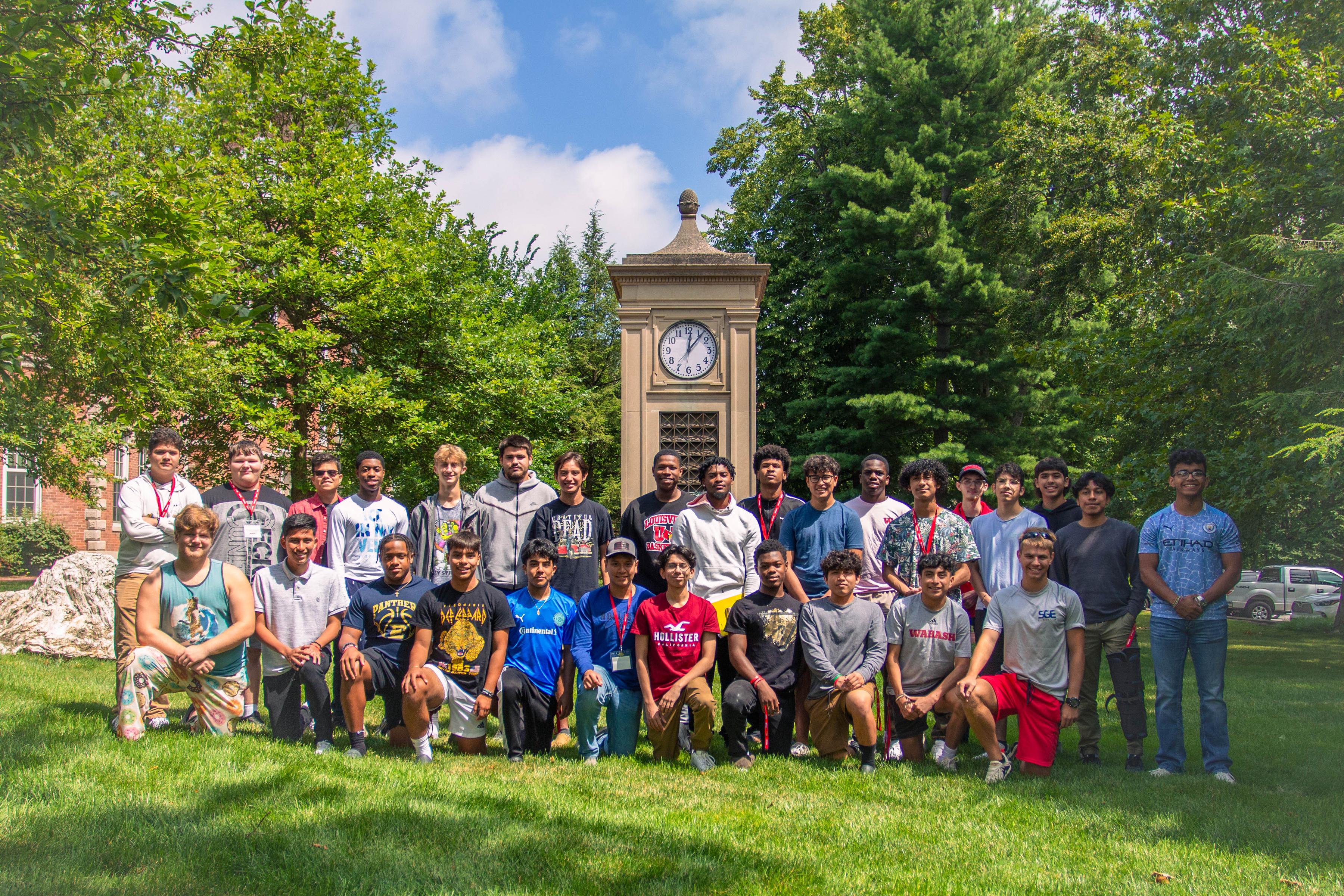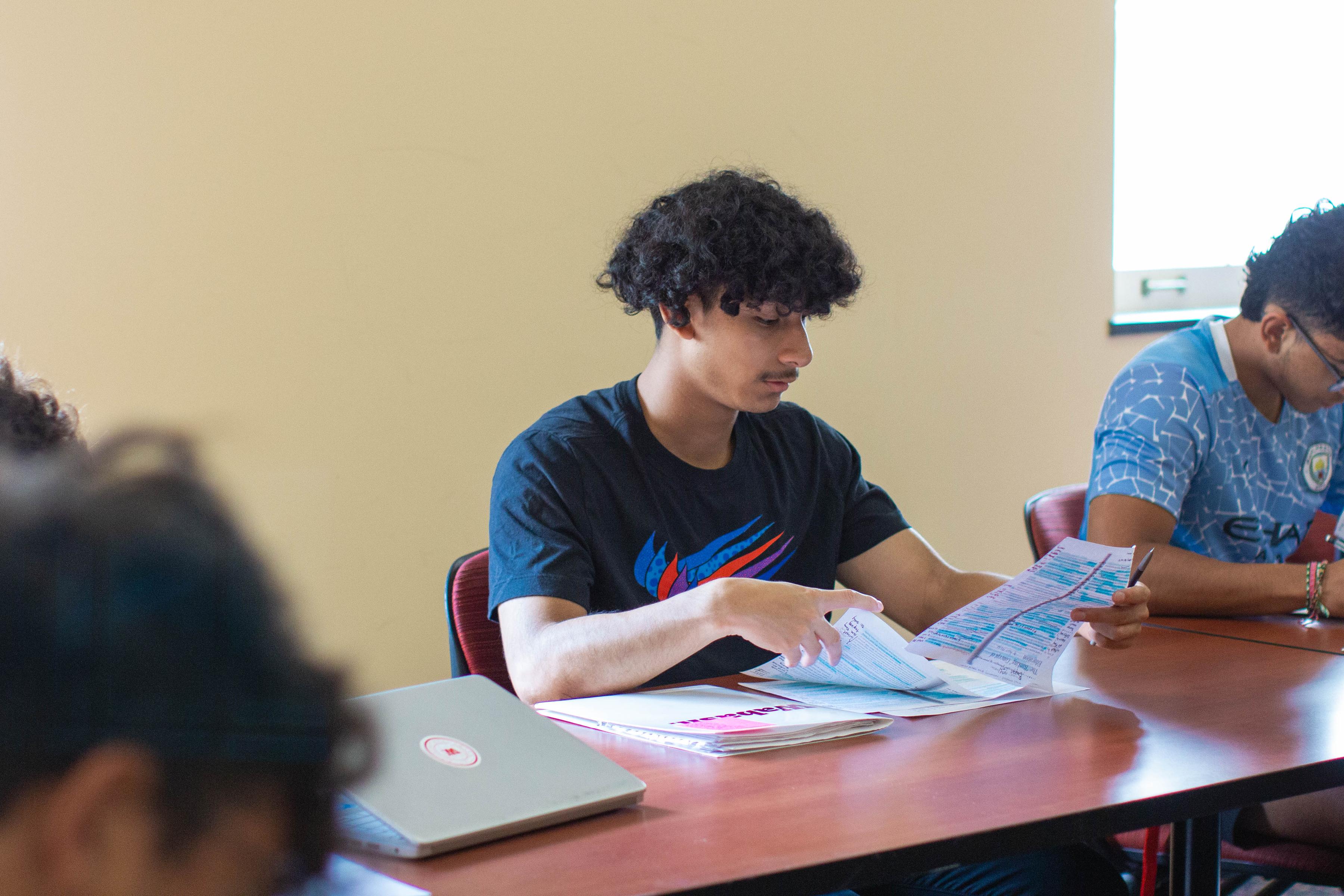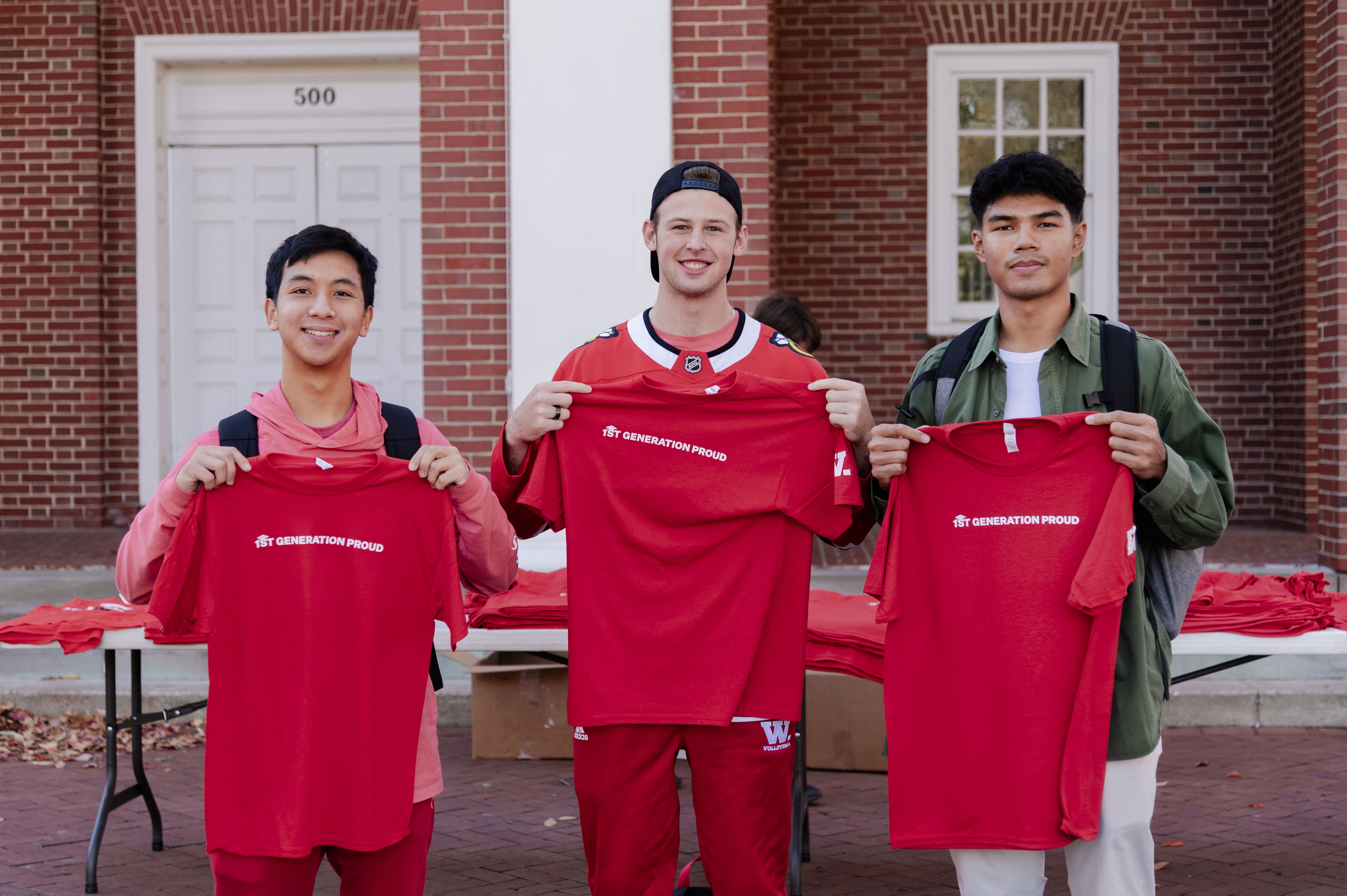Being the first in your family to pursue higher education can be a rewarding and exciting experience. It can also be a little nerve-racking, especially when home is more than 1,000 miles away.
Here at Wabash, approximately 30% of current students are first-generation. Additionally, 20% of faculty and staff and more than half of its deans are first-generation college students.
“First-generation college students are fundamental to who we are,” said Psychology Professor Bobby Horton, “and the success that we enjoy at Wabash College.”
In celebration of National First-Generation College Student Day on November 8, six freshmen part of the Wabash Liberal Arts Immersion Program (WLAIP) reflected on their first semester at Wabash and gave some tips on how other incoming first-generation students can prepare for success.

Q: Where are you from and what are you interested in studying at Wabash?
Jaylen Bobbitt: I am from St. Petersburg, Florida, and would like to major in psychology.
Xavier Cienfuegos: I’m from Alamo, Texas. I would like to major in theater with a minor in film and digital media.
Julio Cobos: I am from Edinburg, Texas. I would like to major in physics. My goal is to graduate from Wabash and continue my studies at a partnering university to obtain my mechanical engineering degree.
Rodolfo Elizondo-Alcala: I am a resident of Reynosa, a border city in the state of Tamaulipas, Mexico. I am currently interested in majoring in political science and English, but I remain open to other fields. My long-term goal is to attend law school after Wabash.
Tony Huett: I’m from Indianapolis, and went to Christel House Watanabe Manual High School. I’m undecided on my major, but that’s all right.
Luis Martinez: I am from Ciudad Juárez, Mexico, and would like to major in financial economics.
What advice to do you have for high school seniors currently in the process of preparing for college?
Bobbitt: Incoming college students should try their best to practice social skills and hold conversations from a business perspective.
Cienfuegos: Managing time is as important as they tell you. As soon as you’re able to fit into a schedule that works for you, school becomes a whole lot less stressful.
Huett: Make sure to pace yourself. A lot of people try to do too many things their freshman year and become completely overwhelmed. Talk to your advisor, talk to your peers, and make sure you’ll have enough capacity for whatever you want to do.
Martinez: Actually learn the material you see in your current classes. When you get to Wabash, your grade will be reflected on your knowledge. You won’t be able to pass the courses doing the bare minimum.
What’s one thing you wish you would have known before starting college?

Cobos: Something I would’ve liked to know before coming to Wabash is how important it is to get your work done as soon as you can. Giving yourself time to look over assignments and seeing what you do and don’t understand will give you time to ask professors for clarification.
Elizondo-Alcala: College is hard. Through this semester I’ve been exposed to new classes, materials, clubs, and interests. You need to have balance between social life and academics if you want to have a rich college experience.
Another thing I wish I would have known is that it’s OK to reach out for help. College life can present various challenges through the semester, and it’s crucial to realize you are not alone. Many resources are available. If you are facing problems with a paper, make sure you go to the Writing Center. If you are struggling in a class, don’t hesitate to reach out to your professor via email or office hours. If you are feeling unwell, the campus nurse is always available. Make the most of the resources the College provides and seek help when needed.
Huett: Wabash isn’t easy. Nobody is going to say it is, but you have so much support here that the only way you fall behind is if you let yourself. Also, join a fraternity, your brothers will lift you up and drag you alongside them if need be.
How has Wabash supported you as a first-generation college student?
Bobbitt: Wabash makes us feel as if we are given a chance for success and are destined to be the ones to guide our family.
Cienfuegos: Wabash supports first-generation students by giving us lots of financial aid so that we can afford college at our income level. Wabash was very generous to me personally, and that gave me lots of hope to be able to finish college.
Cobos: I have seen how Wabash allows for a deep connection between students and staff. The College’s size allows it to provide a variety of support systems for first-generation college students who can’t rely on their parents to help them on their journey. Whether it be struggling in class or just needing someone to talk to, Wabash provides staff that can support first-generation college students struggling to adapt to this exciting new chapter in their lives.

Elizondo-Alcala: As a first-generation student, I didn’t know what to expect. One beautiful thing Wabash has to offer is their close-knit community. It doesn’t matter what interests you have; you will always have a community to call family. For me, this community is with Kappa Sigma and La Alianza: Unidos por Sangre. While fraternity life might not be a fit for everyone, I highly recommend giving it a try due to the numerous benefits it has to offer. At the fraternity, there are many people that care for you and guide you. As a first-generation college student, I feel like the upperclassmen’s guidance is key to make sure I am on the right track.
Huett: Wabash provides so many people and tools that are set up to do nothing but help you understand what’s happening. With me being a first-generation student, me and my dad had no idea what was going on half the time when applying. Wabash, specifically the Financial Aid Office, walked us through it, and now I’m here. Wabash is going to support you, so take advantage of it.
Martinez: I am so grateful that Wabash supported me financially and emotionally. The feeling of “you can be successful” that the teachers transmit is so comforting.